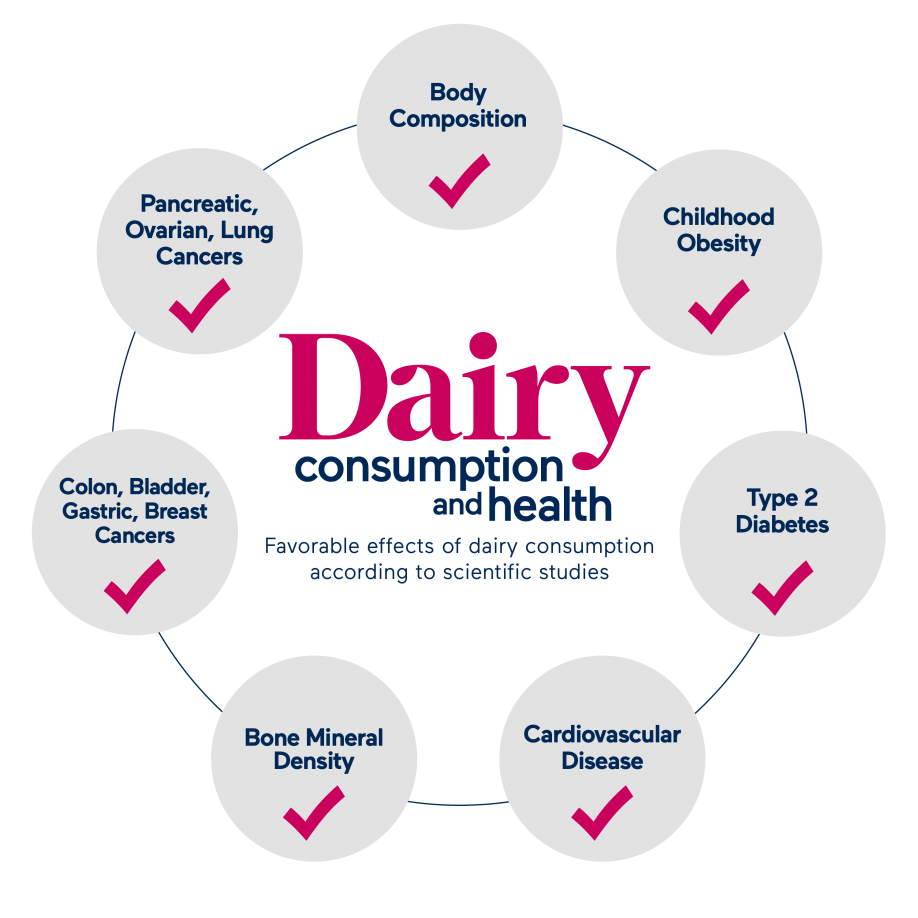Are milk and its derivatives good or bad for health? Science solves the dilemma

Some organizations have claimed that dairy products are associated with certain chronic conditions such type 2 diabetes and cardiovascular diseases. Science, however, has shown those assertions are incorrect.
An analysis of scientific studies published in Food & Nutrition Research in November 2016 concluded that the consumption of milk and dairy products is generally beneficial to humans because it provides nutrients and protects against diseases as presented below:
Obesity and type 2 diabetes
William H. Dietz, director of the Sumner M. Redstone Global Center for Prevention and Health in Children, reported a 38% reduction in the likelihood of being overweight or obese if milk is consumed during childhood. Increased daily intake of dairy products was associated with 0.65% less body fat and 13% less risk of being overweight or obese, according to Liping Lu of Columbia University. In turn, meta-analyses consistently found little or no effect linked to dairy consumption on the risk of type 2 diabetes.

Cardiovascular diseases
A meta-analysis conducted by Tilburg University expert Sabita Soedamah-Muthu ruled out any link between dairy consumption and cardiometabolic diseases. On the contrary, it was found that drinking 200-300 milliliters of milk per day reduces the odds of having a stroke by up to 7-8%.
Bone health
The 2012 European Commission Regulation stipulates that the intake of proteins, calcium, phosphorus, magnesium, manganese, zinc and vitamin K is necessary for bone health. Significant amounts of each of these nutrients are found in milk and dairy products. Therefore, milk is beneficial for bone health in childhood and adolescence. In the case of adults, the evidence is still insufficient.
Cancer
The relationship between cancer and dairy products has been both positively and negatively linked. Authors of the Food & Nutrition Research study admit that most analyses are based on limited tests and that few consistent results exist. Indications exist, however, that dairy consumption could protect against colorectal, bladder, gastric and breast cancer, according to the World Cancer Research Foundation and some meta-analyses.

